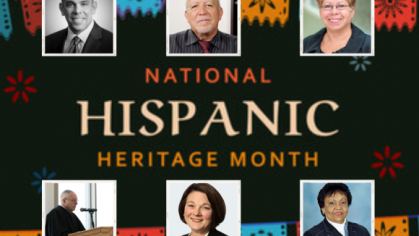Rutgers Global E-Governance Survey Ranks Seoul #1
A global survey of city websites has identified Seoul, South Korea, as the top-ranked city in the performance of municipal e-government. The research study was conducted jointly by the E-Governance Institute, School of Public Affairs and Administration at Rutgers University-Newark, and the Global e-Policy e-Government Institute at Sungkyunkwan University (SKKU), Korea.
The survey evaluated websites of municipalities worldwide in terms of privacy, usability, content, service, and citizen participation and ranked the cities on a global scale. Co-sponsored by the UN Division for Public Administration and Development Management and the American Society for Public Administration, the study listed the following cities among the top five in e-government: Seoul, Prague, Hong Kong, New York and Singapore.
Top 10 Cities in E-Government Worldwide – 2009
| Ranking | City | Score |
| 1 | Seoul | 84.74 |
| 2 | Prague | 72.84 |
| 3 | Hong Kong | 62.83 |
| 4 | New York | 61.10 |
| 5 | Singapore | 58.81 |
| 6 | Shanghai | 57.41 |
| 7 | Madrid | 55.59 |
| 8 | Vienna | 55.48 |
| 9 | Auckland | 55.28 |
| 10 | Toronto | 52.87 |
Seoul continues its top ranking in municipal e-government, similar to the 2003, 2005 and 2007 survey results. As a direct result of this innovative use of e-government, Seoul continues to provide citizens with opportunities to participate in governmental processes, including well-organized and systematic opportunities to submit their ideas and suggestions on proposed e-policies via policy forums. This enables government administrators and elected officials to respond directly to citizen initiatives when establishing public policies. Seoul is also ranked first in the categories of privacy, content, and service.
The city of Prague is ranked second overall, resulting from a significant effort to provide an efficient, effective and transparent government online. Prague is also ranked first in usability and second in the categories of privacy and citizen participation. In Prague, enhancing the usability of websites and providing an accessible privacy policy improves citizens’ level of confidence in interacting and transacting with government online. The website of Prague also offers users with online opportunities to provide their opinion and feedback to administrative departments and elected officials.
Although governments across the world increasingly offer their services online, studies evaluating the performance of such online services primarily focus on federal, state, and local governments in the United States. Only a few studies have produced comparative analyses of e-government in municipalities worldwide. The Rutgers-SKKU survey, first conducted in 2003 and repeated in 2005 and 2007, represents a continued effort to evaluate e-government in large municipalities globally. The study systematically utilizes the comprehensive Rutgers E-Government Performance Index by classifying 98 measures into five categories: privacy, usability, service, content, and citizen participation. Evaluating each municipality’s website in its native language to examine how the local constituency perceives their government online, the survey highlights the strengths and weaknesses of each in terms of the five subject areas and then ranks the municipalities on an overall basis and within each category.
The e-government study highlights the increased attention spent on privacy and services as the percentage of cities with official websites has increased significantly around the world. New York ranks first among cities in North America, and Sao Paulo ranks highest among South American cities. Oceania (Australia, New Zealand and Pacific Islands) was the top ranked continent followed by Europe and Asia. Africa recorded the most significant increase, with Johannesburg ranked as the highest city.
According to Professor Marc Holzer, dean of the School of Public Affairs and Administration and director of the E-Governance Institute at Rutgers University in Newark, “The E-Government Performance Index used for the survey is a set of benchmarks that spotlight high levels of performance throughout the world and foster high expectations for improved web-based municipal service delivery in the near future, in all countries. Administering the survey jointly helped to reduce cultural bias in the survey methodology.”
Average Score of Cities by Continent 2003-2009
According to the Global e-Policy e-Government Institute at SKKU University, “The evaluation based on the E-Government Performance Index is very meaningful because it is a continuing collaborative effort between western and eastern points of view on e-government research. It will guide the desirable future directions of e-government strategies for municipalities worldwide.”
The continued study of municipalities worldwide, with a fifth evaluation planned in 2011, will further provide insight into the direction and the performance of e-government throughout regions of the world. The Rutgers E-Governance Institute is conducting the second E-Government Survey of U.S. states and cities this year. That survey evaluates the status of e-government in all 50 state websites and in the two largest cities in each state. The E-Governance Institute is a program of the School of Public Affairs and Administration at Rutgers University, Newark, which U.S. News & World Report recently ranked 9th in Information and Technology among graduate programs in public affairs in the United States.
For more information regarding the study, contact Dean Holzer at mholzer@pipeline.com, Aroon Manoharan at amanohar@kent.edu or Marc Fudge at mkfudge@gmail.com. To access the latest reports, articles and publications on best practices of e-government across the world, visit http://andromeda.rutgers.edu/~egovinst/Website/.


